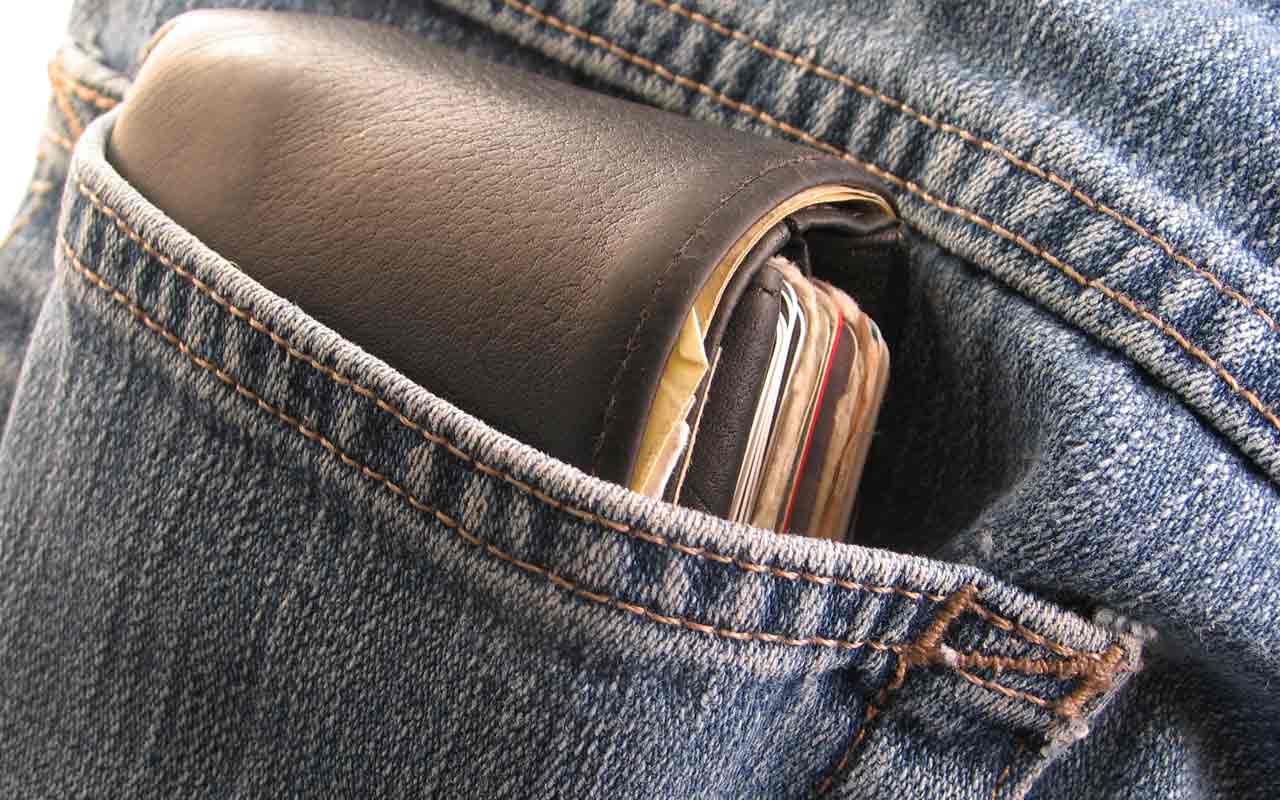
Profit and prosper with the best of Kiplinger's advice on investing, taxes, retirement, personal finance and much more. Delivered daily. Enter your email in the box and click Sign Me Up.
You are now subscribed
Your newsletter sign-up was successful
Want to add more newsletters?

Delivered daily
Kiplinger Today
Profit and prosper with the best of Kiplinger's advice on investing, taxes, retirement, personal finance and much more delivered daily. Smart money moves start here.

Sent five days a week
Kiplinger A Step Ahead
Get practical help to make better financial decisions in your everyday life, from spending to savings on top deals.

Delivered daily
Kiplinger Closing Bell
Get today's biggest financial and investing headlines delivered to your inbox every day the U.S. stock market is open.

Sent twice a week
Kiplinger Adviser Intel
Financial pros across the country share best practices and fresh tactics to preserve and grow your wealth.

Delivered weekly
Kiplinger Tax Tips
Trim your federal and state tax bills with practical tax-planning and tax-cutting strategies.

Sent twice a week
Kiplinger Retirement Tips
Your twice-a-week guide to planning and enjoying a financially secure and richly rewarding retirement

Sent bimonthly.
Kiplinger Adviser Angle
Insights for advisers, wealth managers and other financial professionals.

Sent twice a week
Kiplinger Investing Weekly
Your twice-a-week roundup of promising stocks, funds, companies and industries you should consider, ones you should avoid, and why.

Sent weekly for six weeks
Kiplinger Invest for Retirement
Your step-by-step six-part series on how to invest for retirement, from devising a successful strategy to exactly which investments to choose.
One of the worst feelings is reaching for your wallet and finding it's not there. Panic ensues: Did you leave it at home? Drop it? Were you the victim of a pickpocket? Following our advice won't salve that panic, but it may lessen it.
Because with every new bank slip that bulges from the seams, your personal information is getting less and less safe. With just your Social Security number, identity thieves can open new credit accounts and make costly purchases in your name. If they can get their hands on (and doctor) a government-issued photo ID of yours, they can do even more damage, including opening new bank accounts. These days, con artists are even profiting from tax-return fraud and health-care fraud, all with stolen IDs.
We talked with consumer-protection advocates to identify the 10 things retirees should purge from their wallets immediately. And when you're finished, take a moment to photocopy everything you've left inside your wallet, front and back. Stash the copies in a secure location such as a home safe or a bank safe deposit box. The last thing you want to be wondering as you're reporting a lost stolen wallet is, "What exactly did I have in there?"
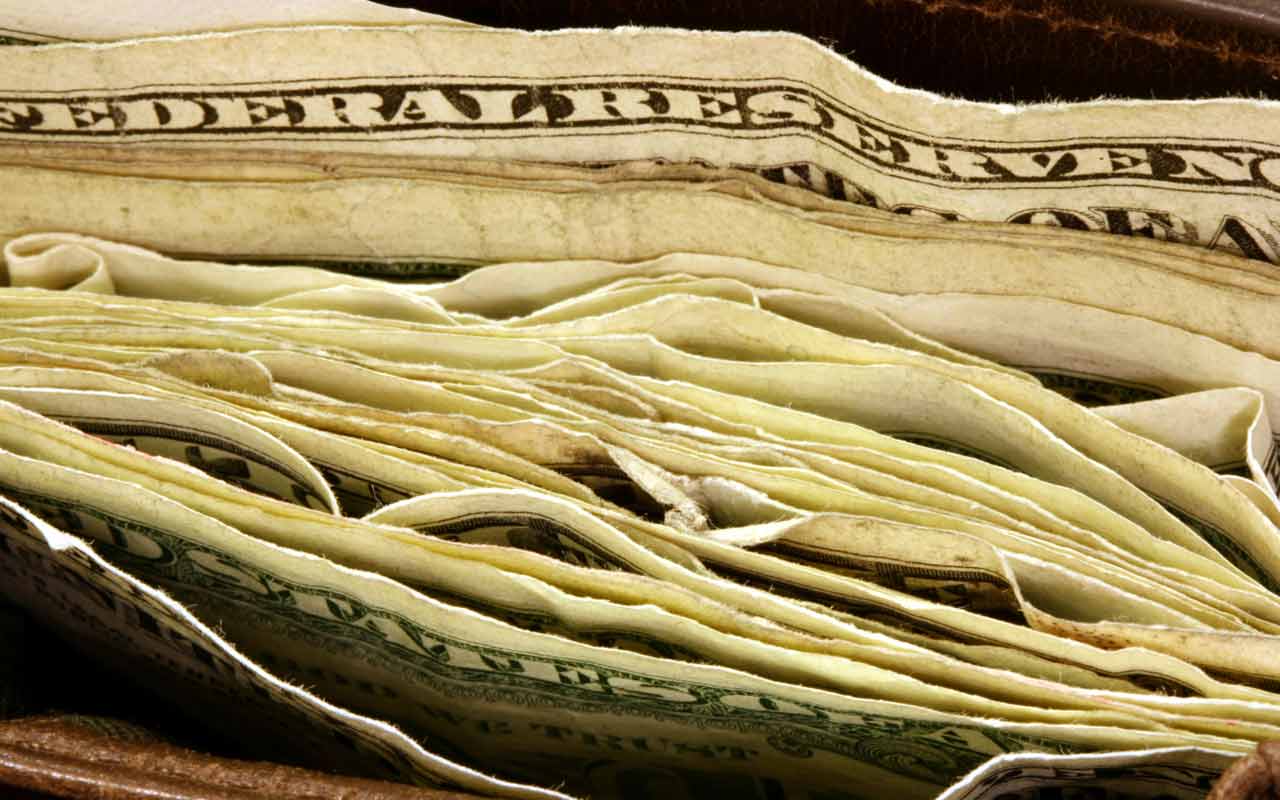
Wads of Cash
Maybe it's ingrained. Your dad carried a wallet fat with cash and you're carrying on the tradition. Stop.
Flashing a wad of cash, even unintentionally, makes you a target for robbery. And if you lose that wallet, you can cancel lost or stolen credit cards and not be affected. But that cash money is gone forever.
Though 30% of all U.S. transactions are done in cash, according to a Federal Reserve study, some retailers are pushing for a cashless system -- meaning they won't accept cash. Among them so far are Amazon Go stores and Sweetgreen restaurants, though lawmakers in some states and cities, including New Jersey, Rhode Island and Philadelphia, are enacting legislation banning cashless stores, arguing they're discriminatory.
Still, it may be time for boomers to join millennials in this cashless quest (one in 10 millennials use their digital wallet--Apple Pay, Zelle, Venmo--to pay for purchases). They're not alone: 34% of Americans under age 50 make no cash purchases in a typical week, according to a 2018 survey by The Pew Research Center.
If you're rightly concerned about running up credit card debt, use a a debit card. It's just like cash.
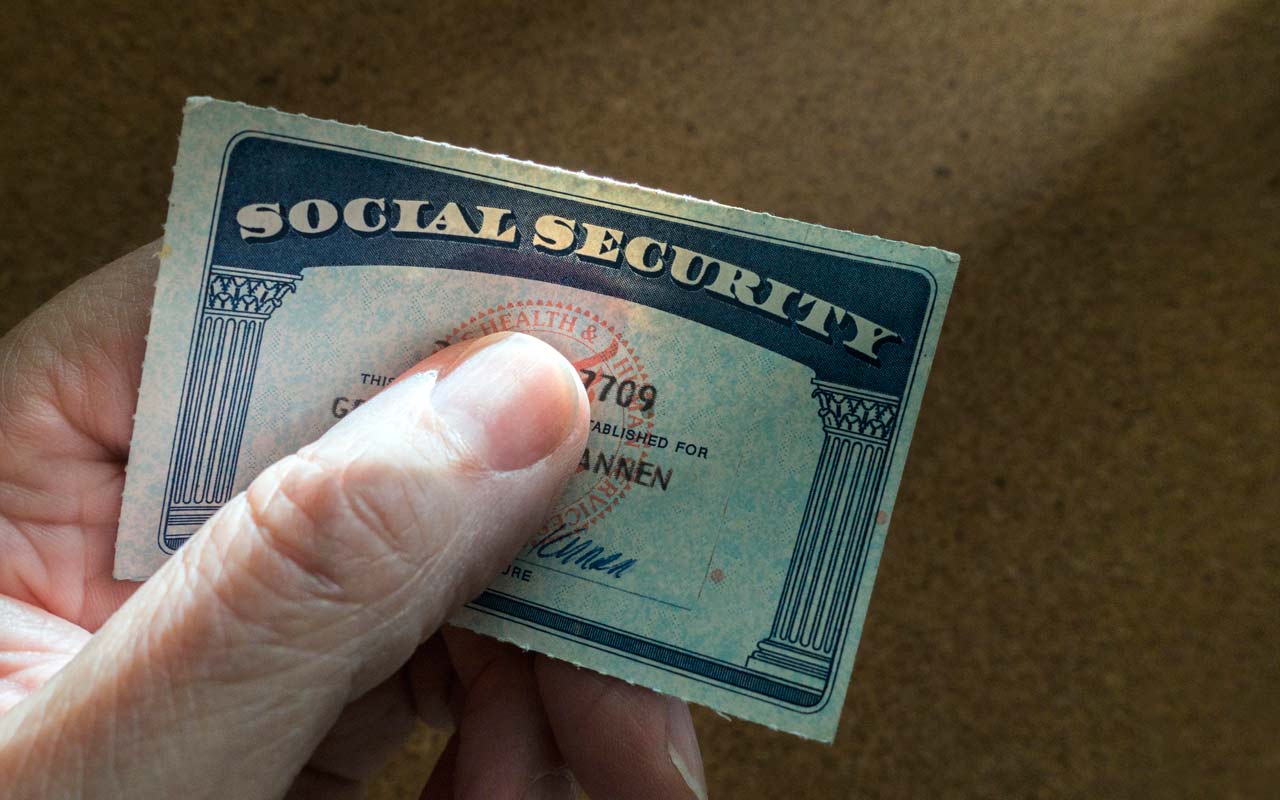
Social Security Card
Losing your Social Security number is a sure ticket to identity theft. Once stolen, rogue identity thieves could use that number to get loans in your name or obtain credit cards. For that reason, identity theft experts say, never carry your Social Security card -- or even a piece of paper with your Social Security number on it.
That task done, make sure nothing else in your wallet has your Social Security number on it, including other forms of identification (expunge your spouse's and children's Social Security numbers, too, if you carry those around in your wallet). States can no longer display your SSN on newly issued driver's licenses, state ID cards and motor-vehicle registrations. However, if you still have any old photo IDs with your Social Security number on them, request a new ID immediately. Even if there's an additional fee, it's worth it to protect your identity.
And check your checks. Some old-timers used to have their Social Security number printed on their checking account checks thinking it would be a better form of ID for the payee. Destroy those checks if you have them lying around or carry one in your wallet.
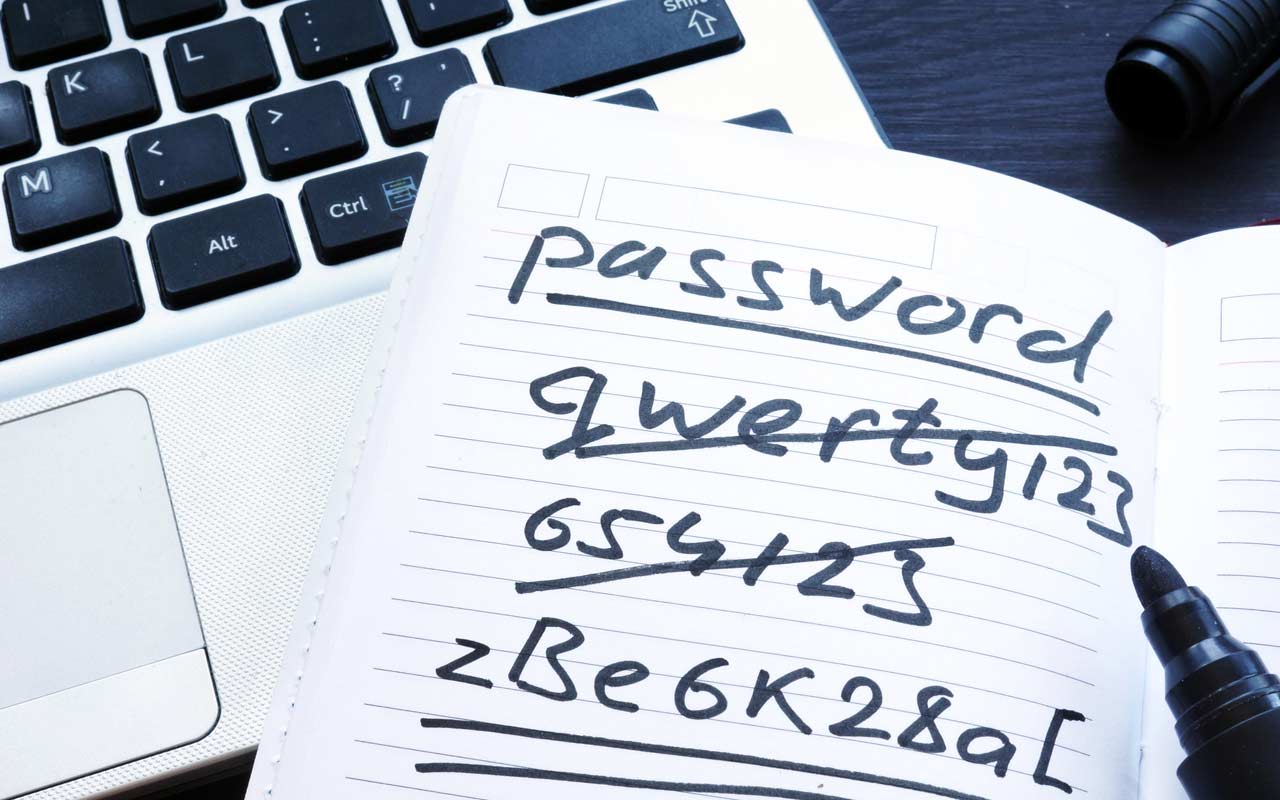
Password Cheat Sheet
We all have them, someplace: password cheat sheets. That's because the average American uses at least seven different passwords to access everything from ATMs to credit card accounts. The smart play, experts say, is to have individual passwords made up of unique combinations of numbers, letters and symbols that you change regularly. But how do you remember them all? For 73% of people, according to a 2017 survey by the Pew Research Center, it's a cheat sheet. And one of the worst places for a password cheat sheet with your ATM card's PIN is your wallet.
There are better options: If you have to keep passwords jotted down somewhere, keep them in a locked box in your house. You should also consider a digital password manager. One to consider is LastPass. The basic service is free, or you can upgrade to the premium version for $3 per month.
A password manager, such as the one built into Apple's Safari browser, can also help you create strong, unique passwords for each of your accounts. Passwords generated by the service will still be long, unpredictable and impossible to remember. But that's okay because you'll never need to type them in yourself.
It's also a good idea to enable two-factor authentication on any account that allows you to. You'll enter your username and password as usual, but the account will then confirm your identity by asking you to enter a code that has been sent to your smartphone or e-mail address.
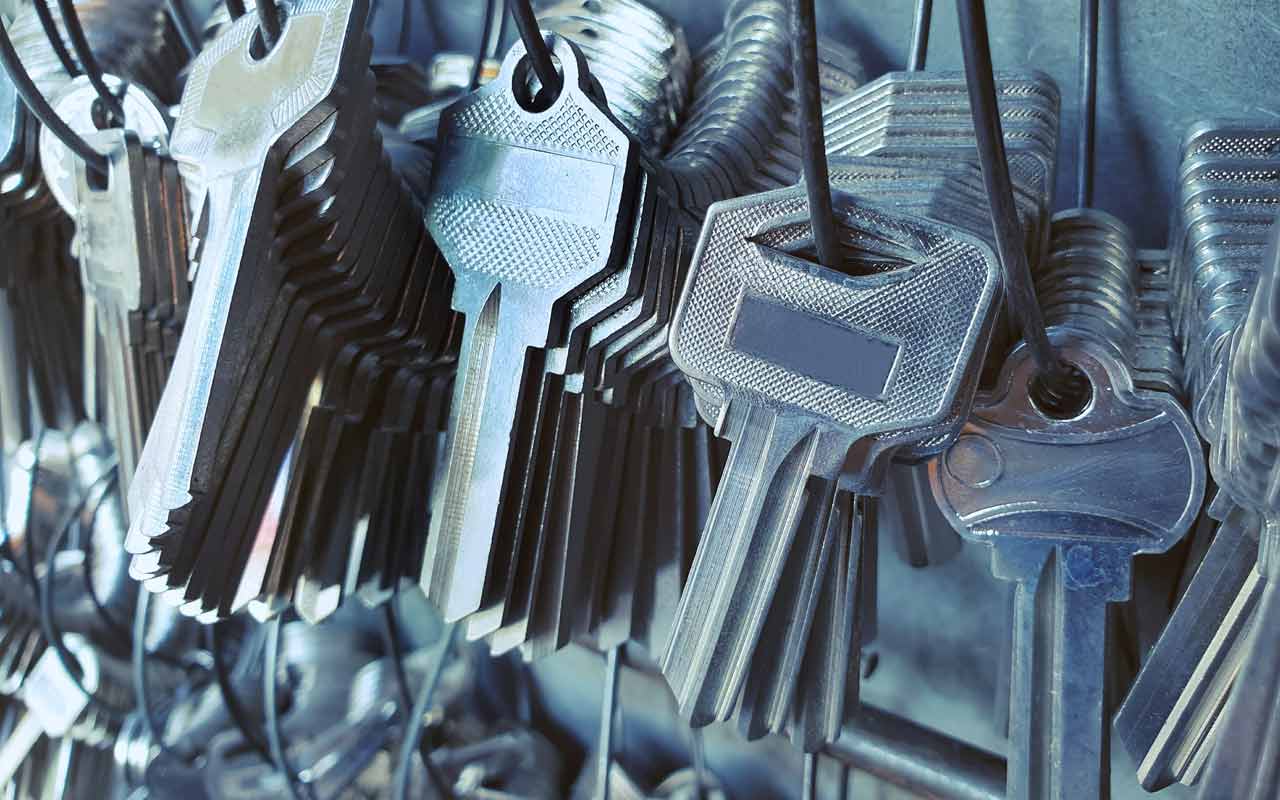
Spare Keys
A lost wallet is bad enough. A lost wallet containing your spare house key along with your ID that shows your home address is an invitation for real-world thieves to break into your home. Security experts say don't put your property, and your family, at risk. (And even if your home isn't robbed after losing a spare key, you'll likely end up paying a locksmith to change the locks for peace of mind.)
The best move is to keep your spare key with a relative or friend. If you're ever locked out, it may take a little bit longer to retrieve your backup key, but that's a relatively minor inconvenience.
Or get with modern times and forget about physical keys. Get smart locks for your home's entry door. Smart locks allow you to unlock (and lock) that door with a keypad or an app. You'll also be able to remotely lock or unlock the door, and some models allow you to create a digital key for one-time use, say to let in housekeepers.
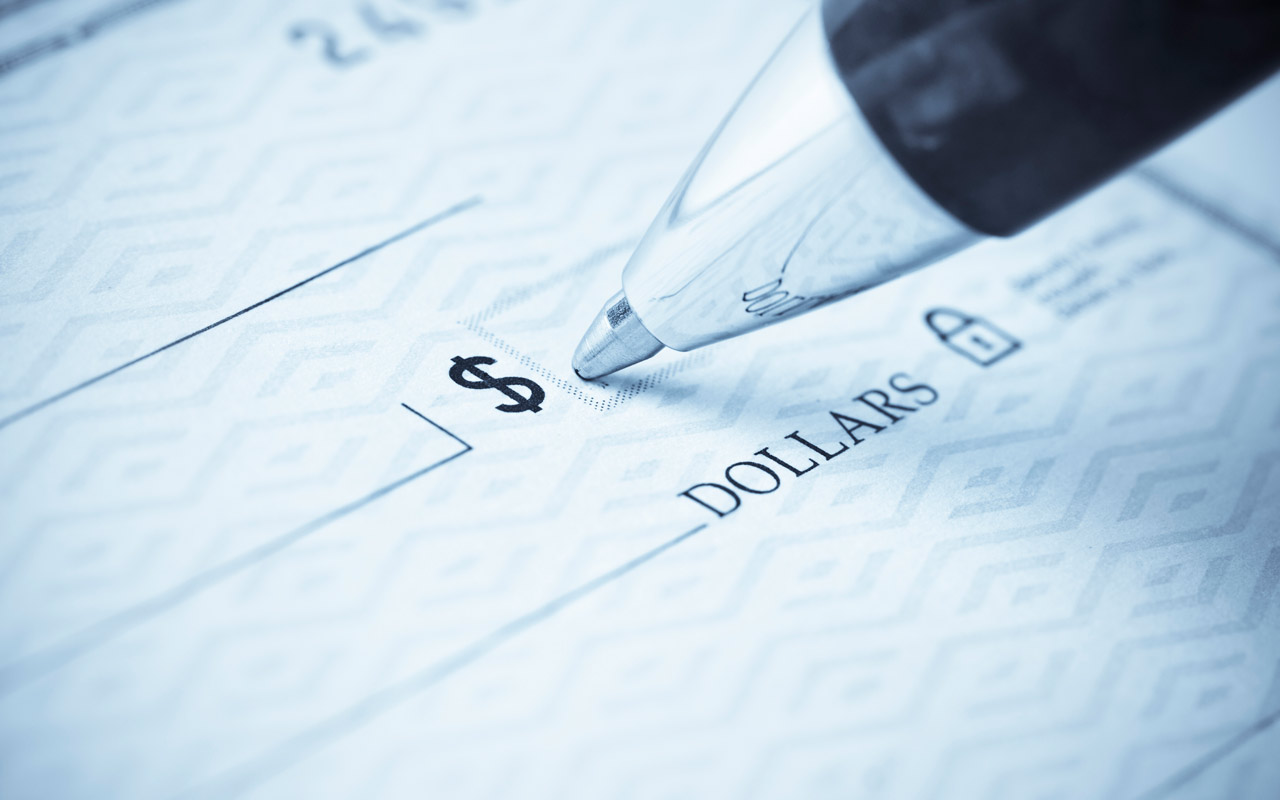
Blank Checks
Old school, yes, but some of us still write checks, though far fewer than back in the day. And for emergency purposes, our parents said, carry a blank check in your wallet, "just in case." That's not good advice.
Blank checks are risky. In the wrong hands, a blank check could be used to quickly drain money from your bank account. And even if the stolen check isn't used, the check has on it your bank account and routing numbers, a target for electronic withdrawals from your account. To pile on, that blank check will also likely have your home address on it (and some people have added their Social Security numbers, too, another no-no).
The better option: Only carry with you the check or checks you think you might need immediately, and leave the checkbook at home.
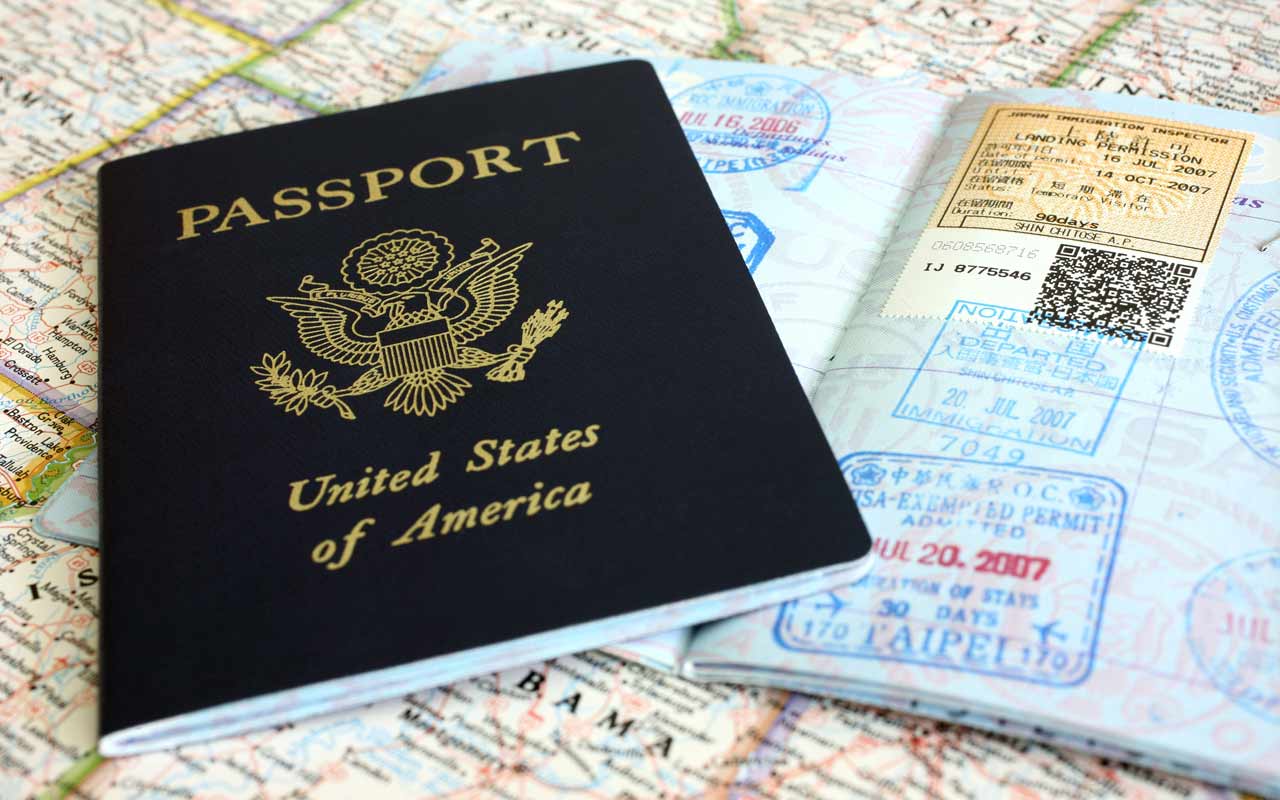
Passport
A passport, like any government-issued photo ID, can be a weapon used against your finances if it falls into the wrong hands, ID-theft experts warn. It could be used to travel in your name, get a new copy of your Social Security card or open bank accounts.
When traveling in the U.S., have with you only your driver's license or other personal ID. Leave your passport book and wallet-size passport card in a secure place such as a fire-proof home safe. When traveling abroad, experts advise, carry a photocopy of your passport and leave the original in a hotel safe.
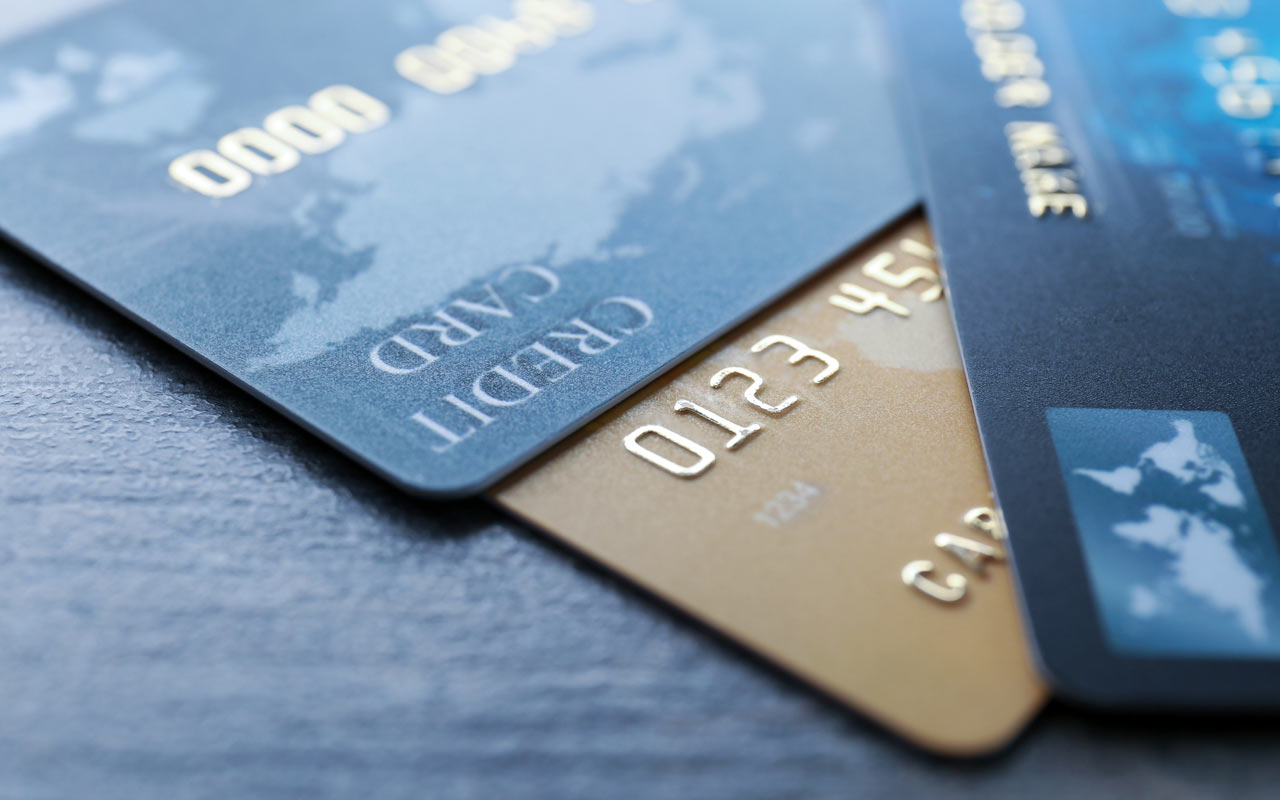
Multiple Credit Cards
You could slim down that fat wallet by rolling with fewer credit cards in it. That way, if your wallet is lost or stolen, you won't have as many credit cards that you'll have to cancel. Our recommendation: Carry one rewards card for everyday purchases as well as a backup card for unplanned purchases or emergencies.
And as we mentioned, photocopy the front and back of everything in your wallet, or write the cancellation phone numbers or websites for your credit cards on a piece of paper at home. The "lost or stolen" number is typically on the back of your credit card, but if your credit card is stolen, that won't do you any good.
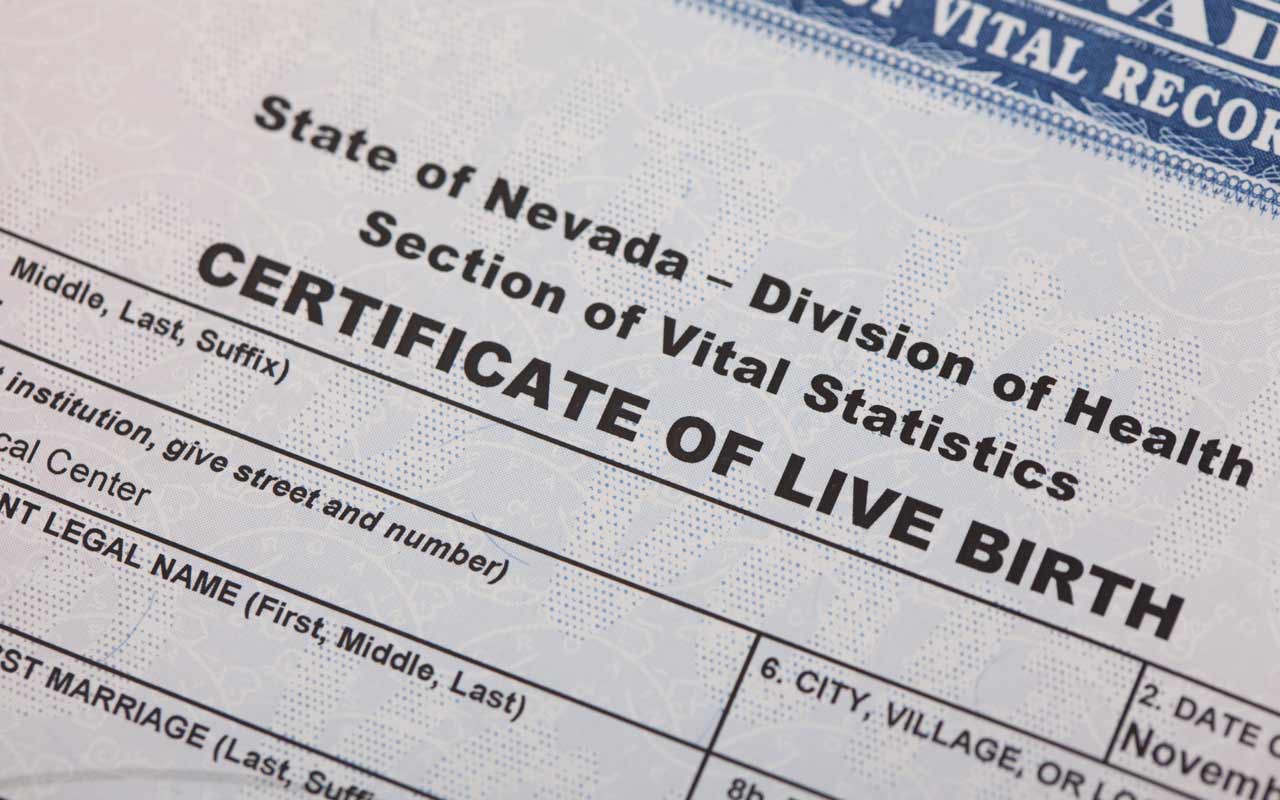
Birth Certificate
Your birth certificate, stolen, won't get anyone very far. But if they have it in conjunction with other types of fraudulent IDs, security experts say, thieves could do some major damage to your finances.
Be especially vigilant on the rare occasions when you're required to carry all of your most sensitive documents at the same time. One example of that is at a mortgage closing, when you might need to bring your birth certificate, Social Security card and passport. Don't let them out of your sight, and take them straight home before you celebrate that closing. It's not a good idea to leave them in your car.

A Stack of Receipts
You don't need all those receipts jammed into your wallet. While businesses have not been allowed to print on paper receipts more than the last five digits of your credit card number for years, ID-theft experts say skilled thieves could use those last five digits and merchant information on receipts to phish for the remaining numbers on your credit card.
Remove those receipts from your wallet daily and shred them. If you need to retain receipts, for possible returns or warranties, ask the merchant to skip the paper and send you a digital receipt instead. Most retailers will. If you have a printed receipt you need to keep, consider making it digital and storing it securely in the cloud. Apps that do this include Shoeboxed, which lets you create and categorize digital copies of your receipts and business cards. Plans start at $29 per month.
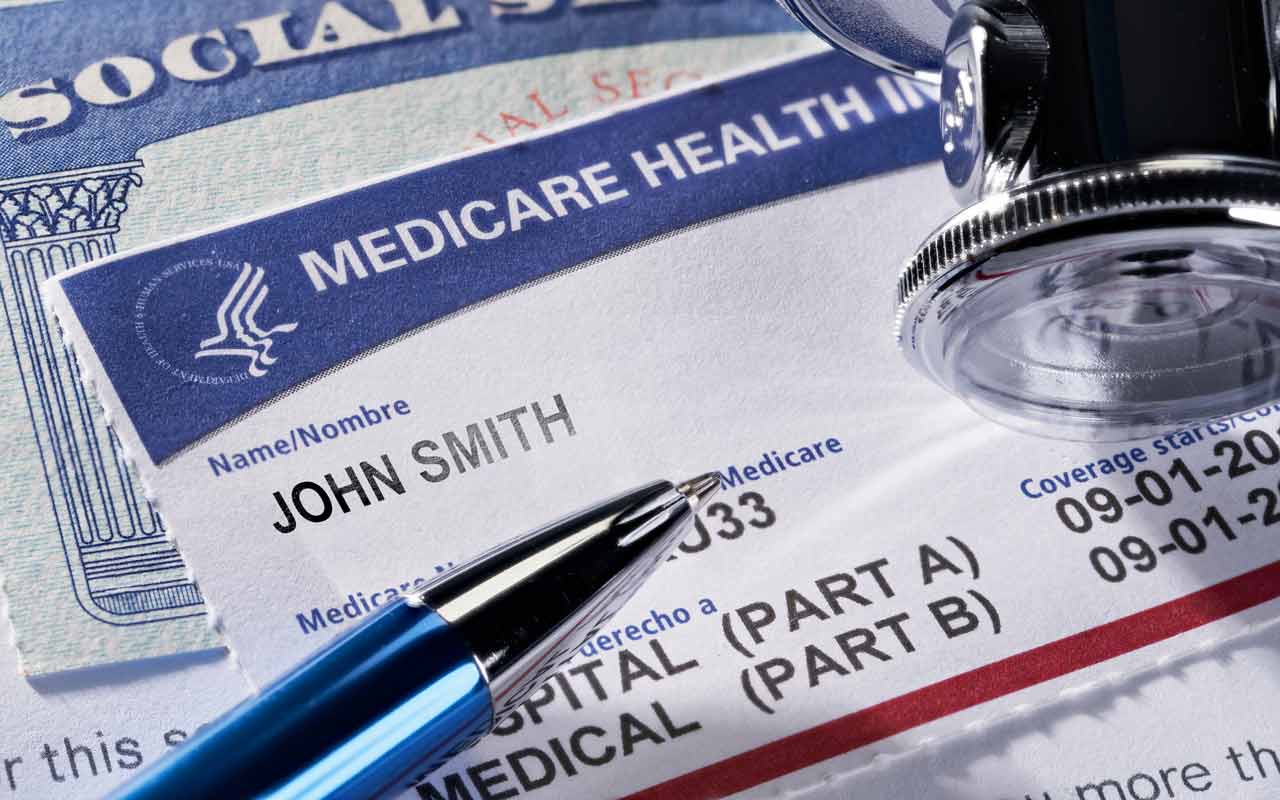
Medicare Card
Some retirees still have Medicare cards with their Social Security numbers printed on them. That's changing. A new law requires the Centers for Medicare and Medicaid Services to remove SSNs from Medicare cards. The rollout of new Medicare cards without SSNs is in its final stages in 2019, but some might still be stuck with an old card, which should be destroyed as soon as the replacement card is received.
In the meantime, if for any reason you still have an old Medicare card with your Social Security number on it, remove it from your wallet and replace it with a photocopy of the card. Black out your Social Security number on that photocopy. If an appointment requires your full Social Security number, you can provide it verbally from memory as needed.
Profit and prosper with the best of Kiplinger's advice on investing, taxes, retirement, personal finance and much more. Delivered daily. Enter your email in the box and click Sign Me Up.

Bob was Senior Editor at Kiplinger.com for seven years and is now a contributor to the website. He has more than 40 years of experience in online, print and visual journalism. Bob has worked as an award-winning writer and editor in the Washington, D.C., market as well as at news organizations in New York, Michigan and California. Bob joined Kiplinger in 2016, bringing a wealth of expertise covering retail, entertainment, and money-saving trends and topics. He was one of the first journalists at a daily news organization to aggressively cover retail as a specialty and has been lauded in the retail industry for his expertise. Bob has also been an adjunct and associate professor of print, online and visual journalism at Syracuse University and Ithaca College. He has a master’s degree from Syracuse University’s S.I. Newhouse School of Public Communications and a bachelor’s degree in communications and theater from Hope College.
-
 Farmers Brace for Another Rough Year
Farmers Brace for Another Rough YearThe Kiplinger Letter The agriculture sector has been plagued by low commodity prices and is facing an uncertain trade outlook.
-
 Stocks Drop as Iran Worries Ramp Up: Stock Market Today
Stocks Drop as Iran Worries Ramp Up: Stock Market TodayPresident Trump said he will decide within the next 10 days whether or not the U.S. will launch military strikes against Iran.
-
 Over 65? Here's What the New $6K Senior Tax Deduction Means for Medicare IRMAA
Over 65? Here's What the New $6K Senior Tax Deduction Means for Medicare IRMAATax Breaks A new tax deduction for people over age 65 has some thinking about Medicare premiums and MAGI strategy.
-
 States That Tax Social Security Benefits in 2026
States That Tax Social Security Benefits in 2026Retirement Tax Not all retirees who live in states that tax Social Security benefits have to pay state income taxes. Will your benefits be taxed?
-
 Seven Things You Should Do Now if You Think Your Identity Was Stolen
Seven Things You Should Do Now if You Think Your Identity Was StolenIf you suspect your identity was stolen, there are several steps you can take to protect yourself, but make sure you take action fast.
-
 The 8 Financial Documents You Should Always Shred
The 8 Financial Documents You Should Always ShredIdentity Theft The financial documents piling up at home put you at risk of fraud. Learn the eight types of financial documents you should always shred to protect yourself.
-
 How to Guard Against the New Generation of Fraud and Identity Theft
How to Guard Against the New Generation of Fraud and Identity TheftIdentity Theft Fraud and identity theft are getting more sophisticated and harder to spot. Stay ahead of the scammers with our advice.
-
 12 Ways to Protect Yourself From Fraud and Scams
12 Ways to Protect Yourself From Fraud and ScamsIdentity Theft Think you can spot the telltale signs of frauds and scams? Follow these 12 tips to stay safe from evolving threats and prevent others from falling victim.
-
 Watch Out for These Travel Scams This Summer
Watch Out for These Travel Scams This SummerIdentity Theft These travel scams are easy to fall for and could wreck your summer. Take a moment to read up on the warning signs and simple ways to protect yourself.
-
 What to Do With Your Tax Refund: 6 Ways to Bring Growth
What to Do With Your Tax Refund: 6 Ways to Bring GrowthUse your 2024 tax refund to boost short-term or long-term financial goals by putting it in one of these six places.
-
 What Does Medicare Not Cover? Eight Things You Should Know
What Does Medicare Not Cover? Eight Things You Should KnowMedicare Part A and Part B leave gaps in your healthcare coverage. But Medicare Advantage has problems, too.

